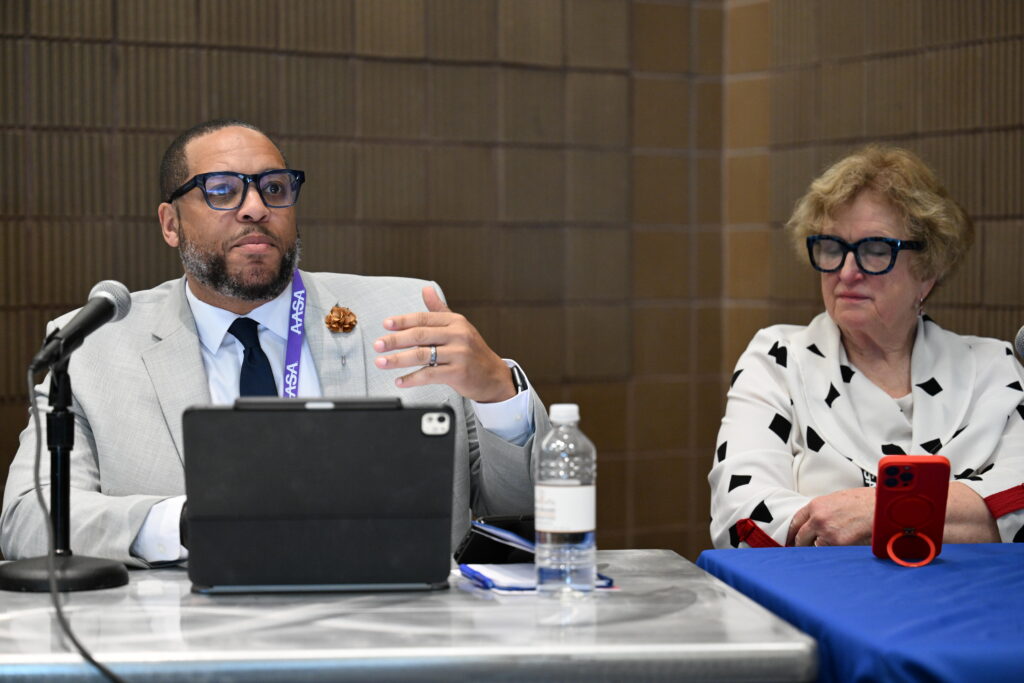Student mental health support was the topic of the hour during a panel called “Confronting the Student Mental Health Crisis: Establishing Sustainable Support Systems in Schools” at AASA’s National Conference on Education in New Orleans on Friday.
Presenter Michael Roseman, senior vice president of district partnerships for Effective School Solutions, shared disturbing statistics with the audience. “Twenty-two percent of students seriously consider committing suicide, up from 16 percent in 2011,” he said.
His firm is a mental health service that provides in-person mental health support for high-risk students.
Students are six times more likely to be able to access mental health care when it is offered by schools, but, he said, “districts often struggle with delivery of mental health services.”
Roseman asked his panelists: “What is the evolving role that schools are playing in supporting the youth mental health crisis?” Rui Dionisio, superintendent of Fair Lawn Public Schools in New Jersey, responded that schools work tirelessly to de-stigmatize mental health.
“Schools have evolved to the point where they actually see the whole child,” said Fran Rabinowitz, executive director of the Connecticut Association of Public School Superintendents. “If you want students to perform well, you’ve got to see the whole child.”
When asked what innovative solutions they had implemented to address the student mental health crisis, Duncan Young, chief executive officer of Effective School Solutions, introduced his early identification plan, which involves screening children at a younger age to accurately pinpoint where mental health help might be needed.
Robert Mungo, superintendent of Mount Holly, N.J. Township Schools, shared his approach to collaboration with staff on mental health projects by saying, “I feed the flowers and not the weeds. I’m in a relentless pursuit of positive things.” He said he takes the time to communicate with his staff face-to-face, often congratulating them on achievements and expressing satisfaction with their work.
When asked why student mental health support was so critical, Mungo responded, “To build a better future.” He added: “The consequences of inaction are much worse” than the cost.”
(Sia Moon, a junior at Benjamin Franklin High School, is a reporter with Conference Daily Online.)


